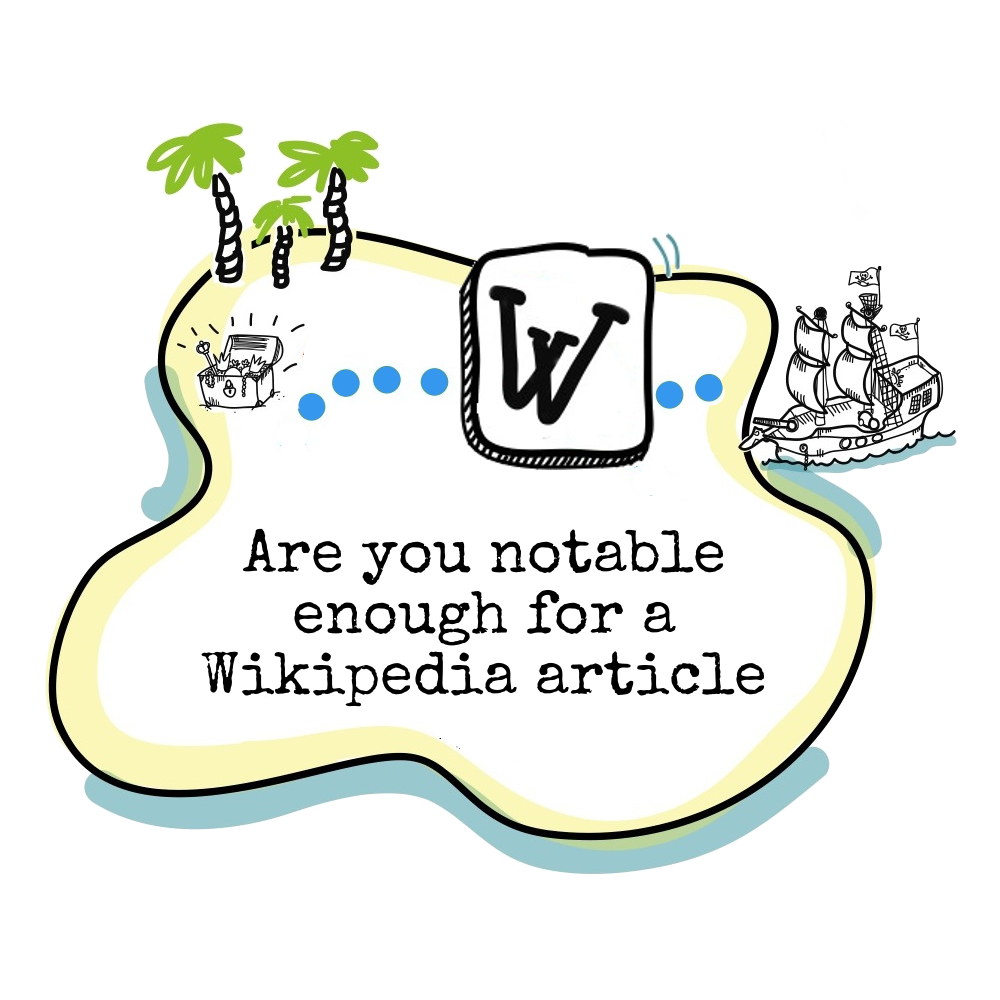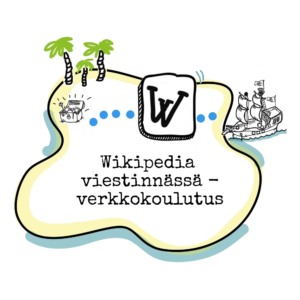Description
Wikipedia is one of the most popular sites in the world, and the content produced there is used, for example, on the Google homepage and by Siri and Facebook. Wikipedia articles are borrowed by journalists as well and students, and people use Wikipedia facts when they are making big decisions, e.g. about what they buy, where they study, live or work. Would you like to be shown there too? That would be awesome but hey, Wikipedia is not a phonebook who anyone or anything can enter but only about things that are “Wikipedia notable”.
Are you worth a Wikipedia article?
Johanna Janhonen is a Wikipedian and a Wikimedian
Johanna Janhonen has been writing to Wikipedia for her customers since 2010. But Johanna is not only a paid editor – she is also part of the global Wikimedia movement. She has been in the board of Wikimedia Finland for three years and was volunteering in Wikimania 2019 leading the social media team for the most important yearly seminar of Wikimedia community.
In Finland she is among the top-50 most productive Wikipedia editors.
Notability in Wikipedia
What is notable then? This is what the English Wikipedia says:
If a topic has received significant coverage in reliable sources that are independent of the subject, it is presumed to be suitable for a stand-alone article or list.
- “Significant coverage” addresses the topic directly and in detail, so that no original research is needed to extract the content. Significant coverage is more than a trivial mention, but it does not need to be the main topic of the source material.
- The book-length history of IBM by Robert Sobel is plainly non-trivial coverage of IBM.
- Martin Walker‘s statement, in a newspaper article about Bill Clinton, that “In high school, he was part of a jazz band called Three Blind Mice” is plainly a trivial mention of that band.
- “Reliable” means that sources need editorial integrity to allow verifiable evaluation of notability, per the reliable source guideline. Sources may encompass published works in all forms and media, and in any language. Availability of secondary sources covering the subject is a good test for notability.
- “Sources” should be secondary sources, as those provide the most objective evidence of notability. There is no fixed number of sources required since sources vary in quality and depth of coverage, but multiple sources are generally expected. Sources do not have to be available online or written in English. Multiple publications from the same author or organization are usually regarded as a single source for the purposes of establishing notability.
- “Independent of the subject” excludes works produced by the article’s subject or someone affiliated with it. For example, advertising, press releases, autobiographies, and the subject’s website are not considered independent.
- “Presumed” means that significant coverage in reliable sources creates an assumption, not a guarantee, that a subject merits its own article. A more in-depth discussion might conclude that the topic actually should not have a stand-alone article—perhaps because it violates what Wikipedia is not, particularly the rule that Wikipedia is not an indiscriminate collection of information.
Now what?

If the instructions above did not help you and arrised more questions than answers, you can ask Johanna Janhonen to evaluate your unique situation. The quick analysis will be completed within three business days since the order has been made. You can help her by filling the form with information on the subject matter. If there has already been an attempt to make a Wikipedia article about you, please let Johanna know about that too so she can see why it was removed in the first place.
Further reading
See also Wikipedia notability guidelines for


